Written by Captain PURU

As we become more conscious of our skin’s protection from the sun, there has been increasing concern over the safety of chemical ingredients commonly found in sunscreens. While chemical sunscreens are effective in shielding from the sun, studies have raised potential health and environmental risks associated with their use. In this article, we’ll explore safer alternatives and raise awareness of the importance of making informed choices for both our well-being and the environment.
A Look at Sunscreen Regulation and Ingredients
Over the years, regulatory bodies like the US Food and Drug Administration (FDA) have been tasked with overseeing sunscreen safety. However, there have been challenges in gaining adequate data from sunscreen manufacturers regarding the absorption levels of certain chemical sunscreen ingredients into the body. These concerns have led to a call for more transparency and accountability within the sunscreen manufacturing sector.
The Safe Choice: Mineral Sunscreens
Mineral sunscreens, formulated with ingredients like zinc oxide and titanium dioxide, offer an alternative to chemical sunscreens. Among these, zinc oxide has garnered attention as a safer option. Interestingly, titanium dioxide is indeed banned as a food ingredient in the European Union and Switzerland due to its potential harmful effects when ingested, so should still be questioned as a sunscreen ingredient when applied topically to the skin.
The Importance of Particle Size
When considering mineral sunscreens, it is crucial to pay attention to the particle size of zinc oxide and titanium dioxide. Uncoated, non-nanometric zinc oxide is widely regarded as the safest option for both human health and the environment. Unlike certain nanometric particles that might raise concerns, non-nano zinc oxide provides effective sun protection without being absorbed into the skin.
Environmental Impact and Reef-Safe Alternatives
Beyond health concerns, chemical sunscreens pose a threat to marine ecosystems, especially coral reefs. When these sunscreens wash off into oceans, they contribute to coral bleaching and the degradation of vital reef ecosystems. Fortunately, there has been progress in addressing this issue. Some regions, such as Hawaii, have taken proactive measures to protect their coral reefs by banning sunscreens containing harmful ingredients like oxybenzone and octinoxate.
Embracing a Safer and Healthier Future
As consumers, we have the power to drive change by making informed sunscreen choices. Opting for mineral sunscreens with uncoated, non-nano zinc oxide provides effective protection for our skin without the potential risks associated with certain chemical sunscreens. Moreover, by choosing reef-safe alternatives, we can play a role in safeguarding the health of our oceans and marine life.
While the concerns over chemical sunscreens have shed light on potential health and environmental dangers, it’s essential to approach this topic with balance and awareness. By embracing safer alternatives and advocating for responsible sunscreen usage, we can work towards a healthier future, protecting not only ourselves but also the environment we cherish.
-
 Pure Sunscreen SPF 50 – Zero White Cast€ 40.95
Pure Sunscreen SPF 50 – Zero White Cast€ 40.95 -
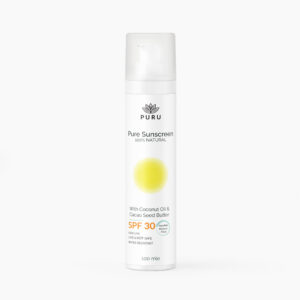 Pure Sunscreen SPF 30 – Zero White Cast€ 37.95
Pure Sunscreen SPF 30 – Zero White Cast€ 37.95 -
 Pure Sunscreen – Babies & Kids SPF 50€ 30.95
Pure Sunscreen – Babies & Kids SPF 50€ 30.95 -
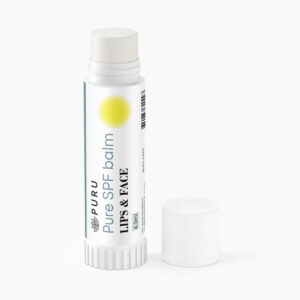 Pure SPF Face & Lip Balm€ 10.45
Pure SPF Face & Lip Balm€ 10.45 -
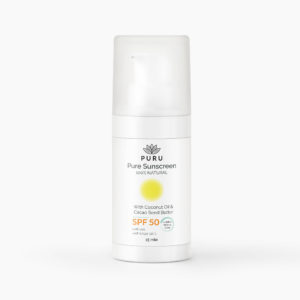 Pure Sunscreen SPF 50 – Zero White Cast 15ml€ 10.45
Pure Sunscreen SPF 50 – Zero White Cast 15ml€ 10.45 -
 Pure Natural Deodorant – Frutee€ 15.45
Pure Natural Deodorant – Frutee€ 15.45 -
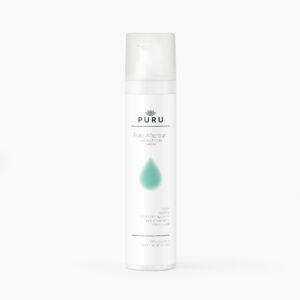 Pure After Sun€ 30.95
Pure After Sun€ 30.95 -
 Pure Body Butter – Almond€ 20.45
Pure Body Butter – Almond€ 20.45 -
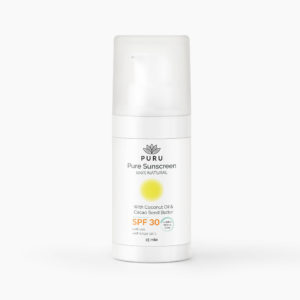 Pure Sunscreen SPF 30 – Zero White Cast 15ml€ 10.00
Pure Sunscreen SPF 30 – Zero White Cast 15ml€ 10.00




